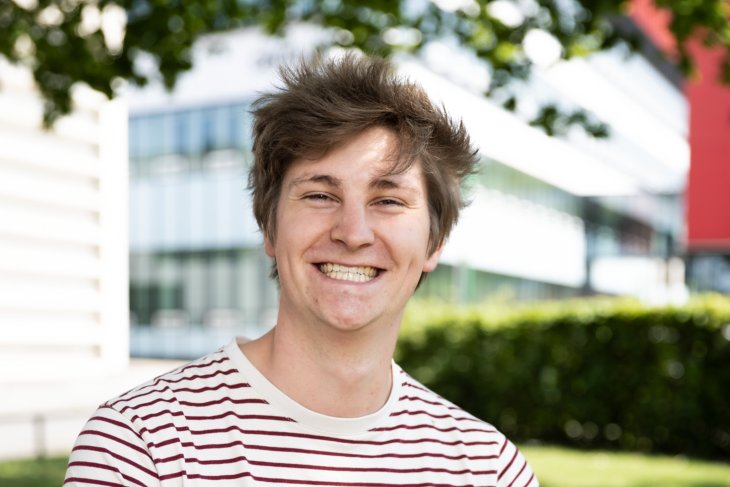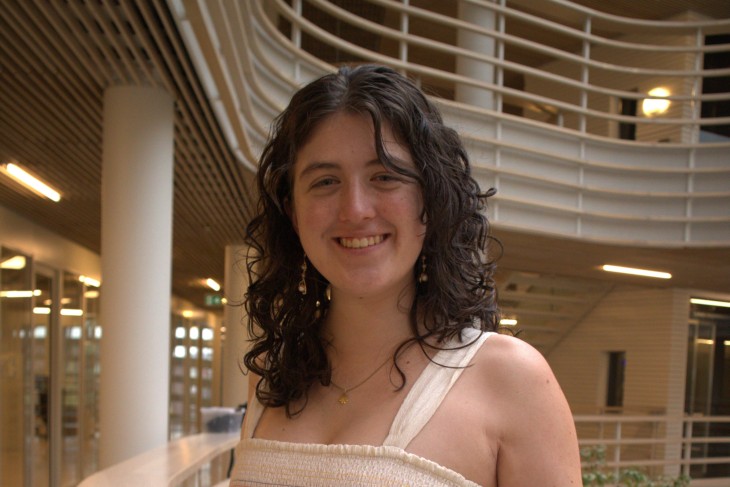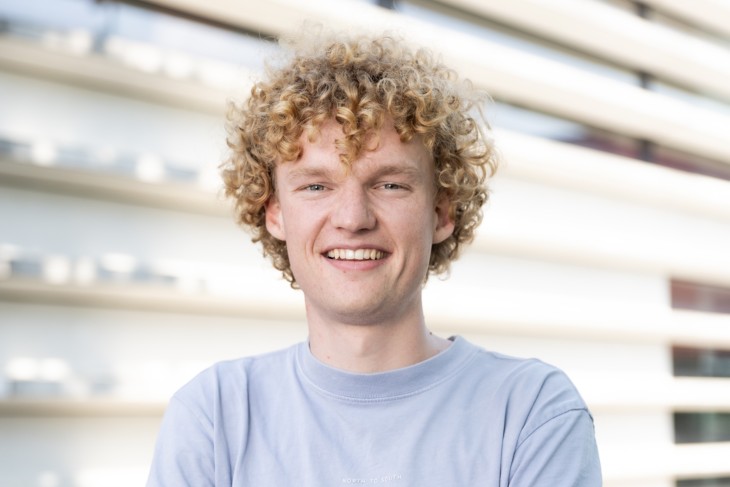“After completing my Bachelor's in Mechanical Engineering at the University of Twente, I thought pursuing a Master’s in the same field was a logical next step. The exciting thing about mechanical engineering is that it’s so versatile. Whether it's creating a wind turbine or a robot that can perform surgery, mechanical engineering lays the foundation for deeply understanding those systems. It comes down to using the principles of motion, energy, and force and ensuring that designs function safely, efficiently, and reliably.
Versatility
The programme is incredibly versatile, and you can choose from seven specialisations. For example, you can focus on energy and flow or delve into materials science, among many other areas. I'm interested in robotics, mechatronics, and control engineering: think about what it takes to create highly precise movements in a robotic arm. That’s why I chose the specialisation in Robotics, which, however, isn’t available anymore. You can choose the Master’s in Robotics now instead.
To be successful in this programme, you need a strong background in maths and physics and a genuine interest in learning how things work. For almost every course I took, a good understanding of calculus, differential equations, and linear algebra was necessary.
Challenges
I struggled with understanding some concepts like robust control and stability. Those are key in mechanical engineering because they directly impact how machines and systems behave under different conditions. For example, if you’re designing a drone, it needs to stay stable even when faced with wind gusts. It took me a while to wrap my head around these ideas, but once I got it, I started to appreciate how crucial this knowledge is, not just for the course but for the entire field.
In another course focused on modelling and dynamics, I encountered new mathematical concepts, such as topology. It’s a branch of maths that helps figure out the best way to spread out material within a certain space. Diving into such advanced maths was challenging, but I learned to approach engineering problems with a more analytical mindset.
Practical learning
My favourite part is the hands-on projects. In one assignment, we had to program a robot to follow a coloured ball and maintain a certain distance from it. That requires knowledge in developing algorithms that enable the robot to maintain a desired distance from the moving target. We got to see our code come to life as the robot performed the task in real life: it was rewarding to see how theoretical concepts learned in class work in practice.
Another cool project was in a soft robotics course. In traditional robotics, actuators (the parts that move) are typically rigid. However, in soft robotics, the actuators are designed to be flexible and adapt to their environment. For example, when you push something with an inflated balloon, it reacts differently than a rigid piston.
During the course, we experimented with these soft robotic techniques and designed a robot that could climb trees. The challenge was to create a mechanism that could navigate around branches and adjust to varying tree diameters. We used balloons as actuators, allowing the robot to grip the tree regardless of its shape. The project effectively demonstrated the principles of soft robotics and its potential applications, and I learned to design adaptive technologies that can work in unpredictable real-world environments.
Plans for the future
I'm now searching for a master's thesis project. I'm interested in mechatronics as I believe it will play a significant role in the future with the latest developments in automation and robotics. For now, I’m excited to see where this path will take me.”




